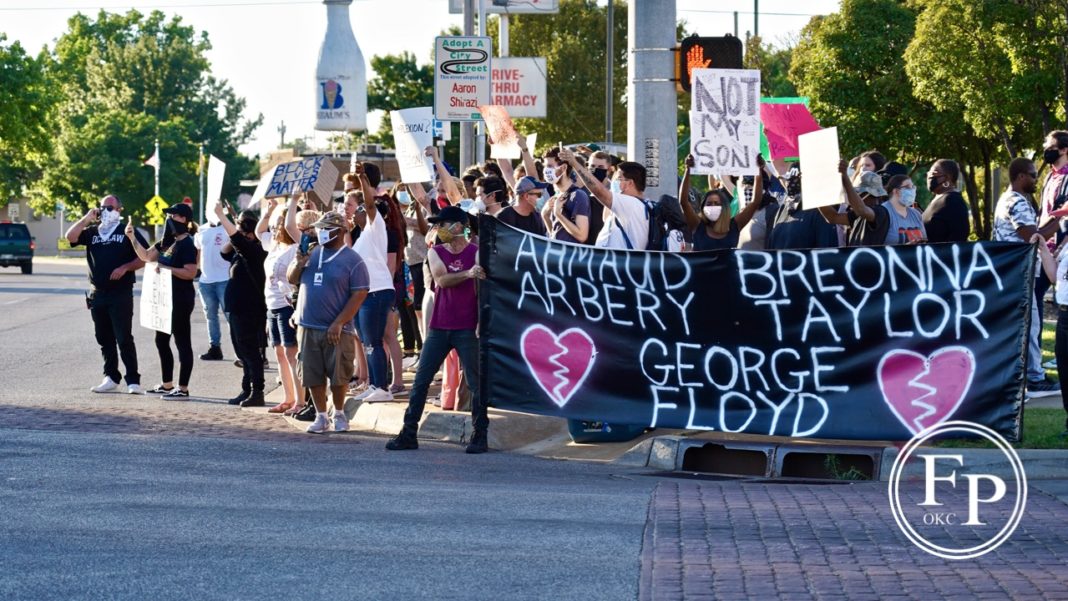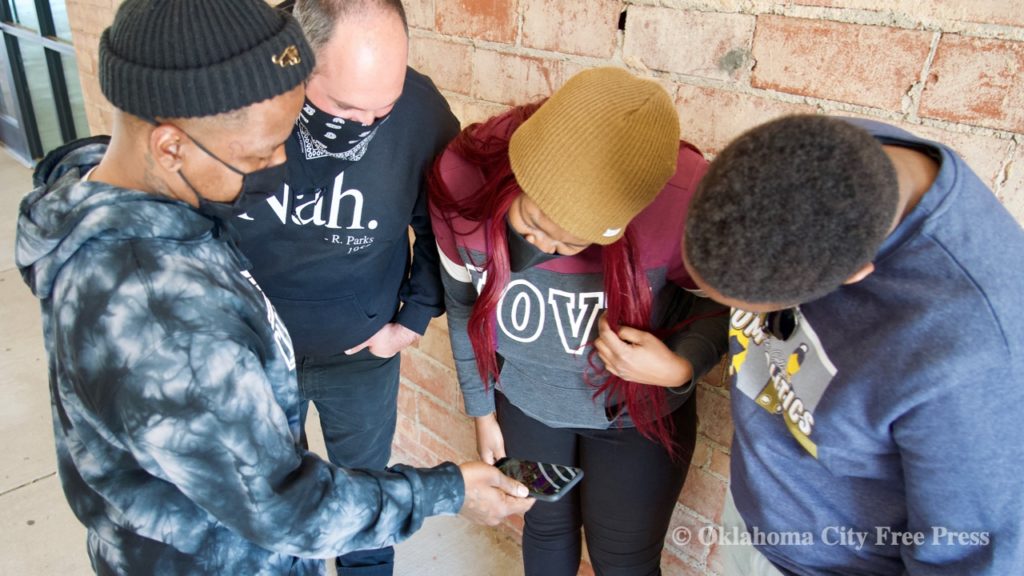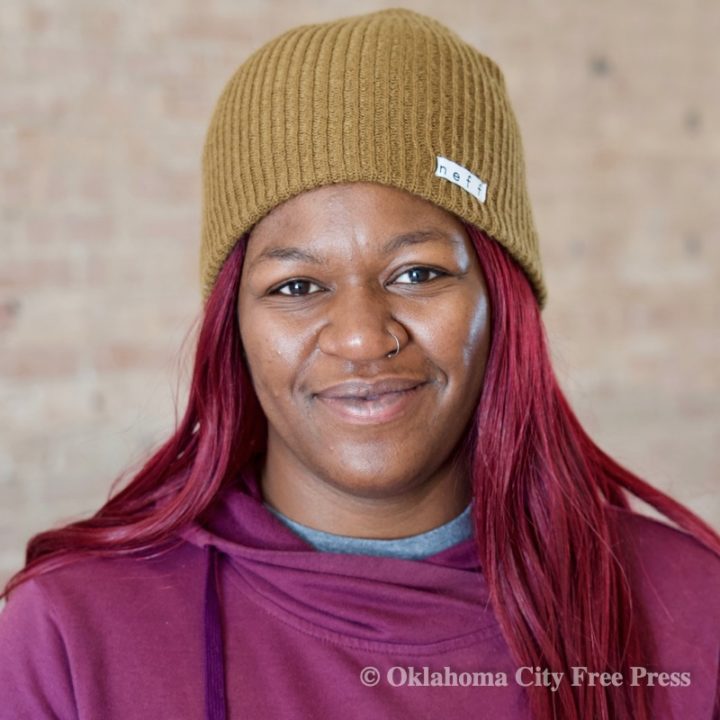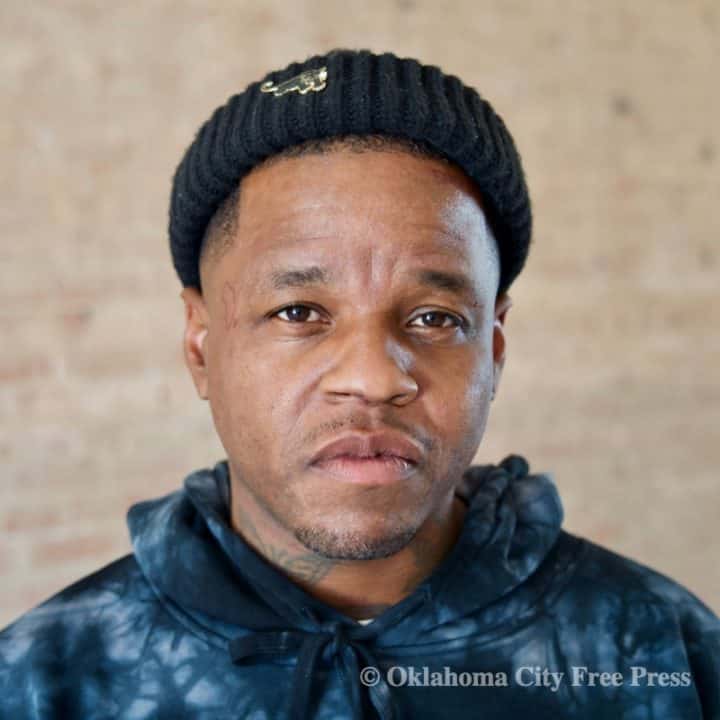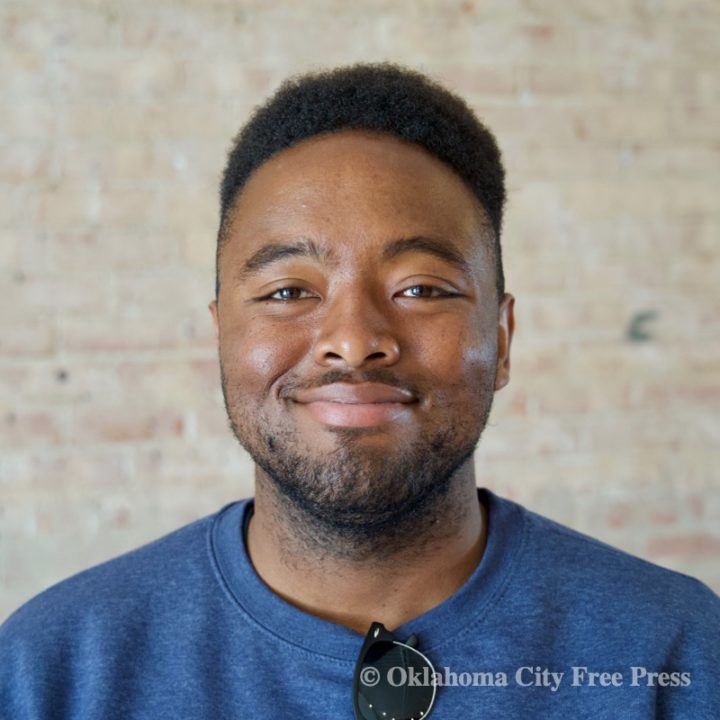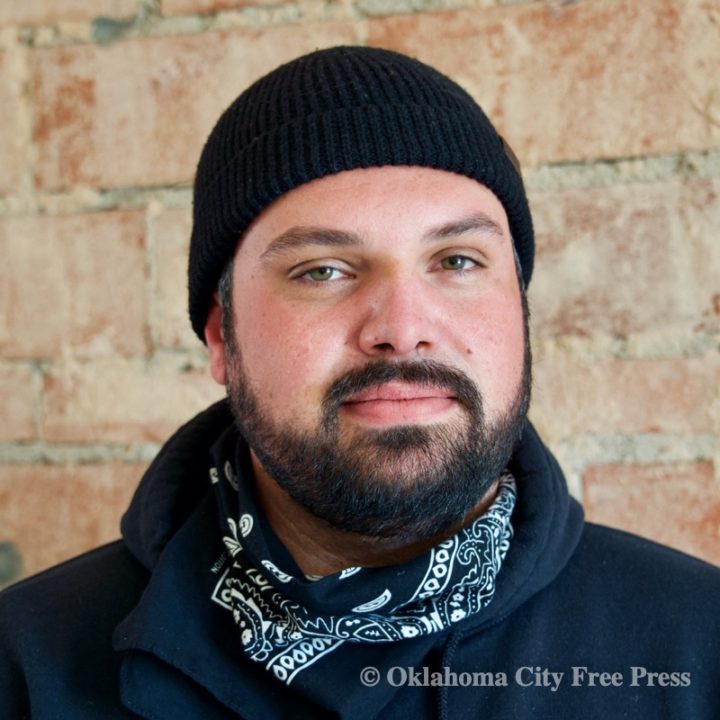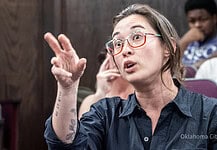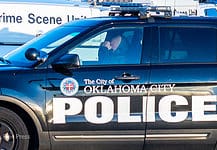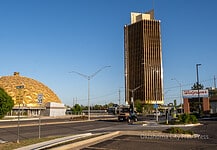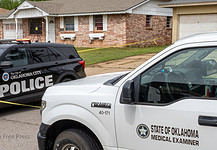Last Updated on April 21, 2021, 12:34 AM | Published: April 21, 2021
OKLAHOMA CITY (Free Press) — Just before the verdict was announced in the Derek Chauvin trial Tuesday afternoon, four of Oklahoma City’s most active, persistent racial justice protest leaders gathered in a shop on the east side to listen to the verdict and then decide what to do next.
Adrianna Laws, Jabee Williams, Jess Eddy, and Duron Wise gathered to decide if they needed to pull together a protest one more time, another in a long string of them since May 30.
As it turned out, the verdict in Minnesota was that Chauvin, then a white Minneapolis police officer, was guilty on all three counts in the the death of George Floyd, a black man who had been arrested for trying to pass a counterfeit $20 bill and died from Chauvin placing his knee to the back of Floyd’s neck.
And, there were no protests that happened Tuesday in Oklahoma City, at least by the same people who protested all summer in 2020.
Instead, the four leaders agreed to talk with this reporter about what the verdict meant and what it didn’t mean to them.
It was a brief and collective sigh of relief but with heavy reservations as to whether the jury decision in Minnesota was all that big of a win in the larger scheme of things, especially in Oklahoma.
“Panic”
Adrianna Laws, a student at Rose State College and founder of Collegiate Freedom and Justice Coalition, said that when she heard that the verdict was going to be announced Tuesday she “went into a panic.”
“I started sweating. I was shaking. You know, I rushed to drop my daughter off and then come here to meet with my brothers,” said Laws. “And, I was extremely nervous because I didn’t think it was going to turn out the way it did.”
She said with a long string of verdicts that have found cops who killed not guilty she knew that the same system could easily operate to free Chauvin as well no matter how much evidence was compiled against him.
Mobilize more citizens
“This is just one case where we’re getting a verdict,” Laws said. “So it makes me hopeful, not hopeful that we will see more verdicts like this, but hopeful that we will be able to mobilize more citizens, like we’ve seen happen for George Floyd in the last year. And hopefully, we can start to mobilize around the systemic change that’s needed nationwide.”
To Laws, it was significant in that those who had essentially given up on the current legal system to actually work for everyone would be encouraged to keep fighting for change.
“I’ve heard from a lot of people, predominantly black people that were showing up [to the protests] that they didn’t have faith in the system. And, they didn’t have hope for the system to right the wrongs that have been perpetuated over the last 400 years.”
Just one conviction
All four of the leaders were not overly excited about the accomplishment of just one conviction of a police officer who killed outside the law since some studies show around 900 to 1,200 police killings each year.
Instead, the four spoke seriously about the reactions among some whites on the far right of the political spectrum who were already pushing through anti-protest laws through in the Oklahoma Legislature in an obvious reaction to last summer’s protests.
“Afraid”
“This is a reflection of something that is not even a reality,” said Jabee Williams, a native of OKC, activist, poet, and hip-hop artist. “I’m saying, people are afraid of something that doesn’t even exist here. I’m saying there is talk and narrative about things that that have never happened here.”
Williams said that there are big fears of people randomly harming others during a riot and committing acts of violence against residents of a city.
He pointed out that even during the tensions of the Civil Rights movement there had not been violence perpetrated by Civils Rights protesters in Oklahoma City.
And he said that even up through last summer there has not been violence carried out protesters.
“The only act of violence at any protest at any rally was the violence that the police did to the people, that’s the only violence that they’ve ever seen,” said Williams.
Williams told this reporter that he is already seeing signs that people who considered all police to be a barrier against feared actions of people different from them would be alarmed by the Chauvin conviction and strive even harder to control people they consider to be dangerous.
Police will go hard
Williams, who has often spoke of having a police officer point a gun at him at around five years old, was not hopeful about what the police might do in response.
Williams said he thinks the police will “go hard on us” and “step it up” to “keep us in line.”
“They’ll just George-Floyd us real quick, you know, and so I think that’s what this is going to cause and that’s the sad part,” said Williams.
“Relief”
Duron Wise, another leader in the summer/fall protests and another founder of the Collegiate Freedom and Justice Coalition, told me that what he felt upon hearing the verdict was “relief” but also “wholeness.”
“Relief, because, when I showed up here, I fully expected Derek Chauvin to be acquitted of all charges,” said Wise. “So seeing that he actually was convicted on three charges and had his bail and bond revoked. That was incredibly surprising.”
Not hopeful
But, like Williams, he did not seem hopeful that somehow this verdict would square relations in Oklahoma City between the police and the city’s residents.
“So we saw a lot of tear gas, they used a lot of rubber bullets and excessive force…. And, it seemed like that was kind of the police’s response to what they saw as an affront to their power.”
“And, it seems like this is going to be another opportunity for them to do a similar thing, because they see this as possibly the tides turning,” said Wise. “I don’t even think they even have a reason to believe that.”
“Isolated incident”?
“Honestly, because this trial in this case, had so much public pressure, I’m concerned that this will be an isolated incidence of justice, ” said Jess Eddy a law student and one of the founders of Whites Against Racism.
He isn’t hopeful that this one case will change much in Oklahoma politically or culturally.
“I see some change in public opinion in other places in the country. But in Oklahoma, I see more support for Derek Chauvin and police officers who kill people.”
“It’s just a sad reality the [political] right in America even when something is kind of clearly wrong,” Eddy said. “They see it as an attack on their entire existence, and are going to be very defensive about about this and things going forward.”
“Not stopping anything”
Laws specifically addressed the issue of the state Legislature passing laws meant to prohibit free speech and the right to free assembly.
“My message to the legislature is pass whatever you want to pass. I believe in civil disobedience,” Laws said.
She named the great Civil Rights leaders such as OKC’s Clara Luper, and national leaders in that movement like Martin Luther King, Malcolm X and others as being those who engaged in civil disobedience to create change.
“So, pass all the laws you want to, you’re not stopping anything, we will still be here,” said Laws in a message to the Legislators. “We will still March and we will still speak out against unjust behavior that comes from our government systems.”
Founder, publisher, and editor of Oklahoma City Free Press. Brett continues to contribute reports and photography to this site as he runs the business.
